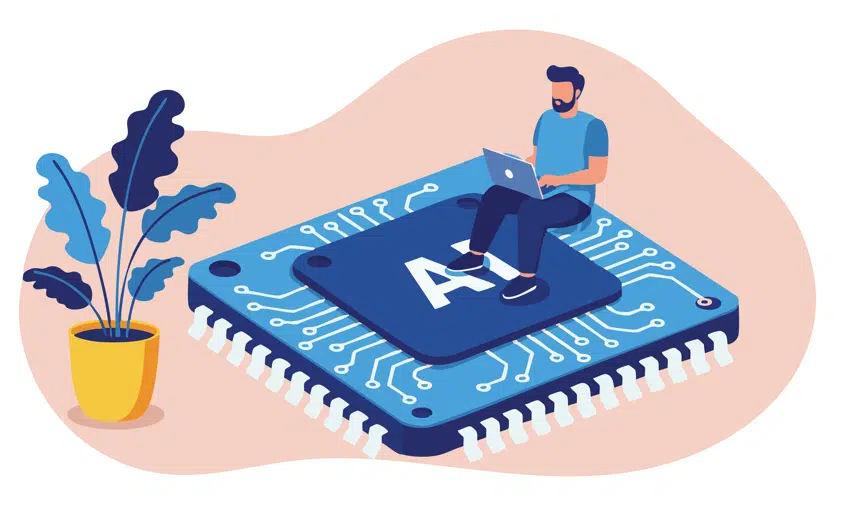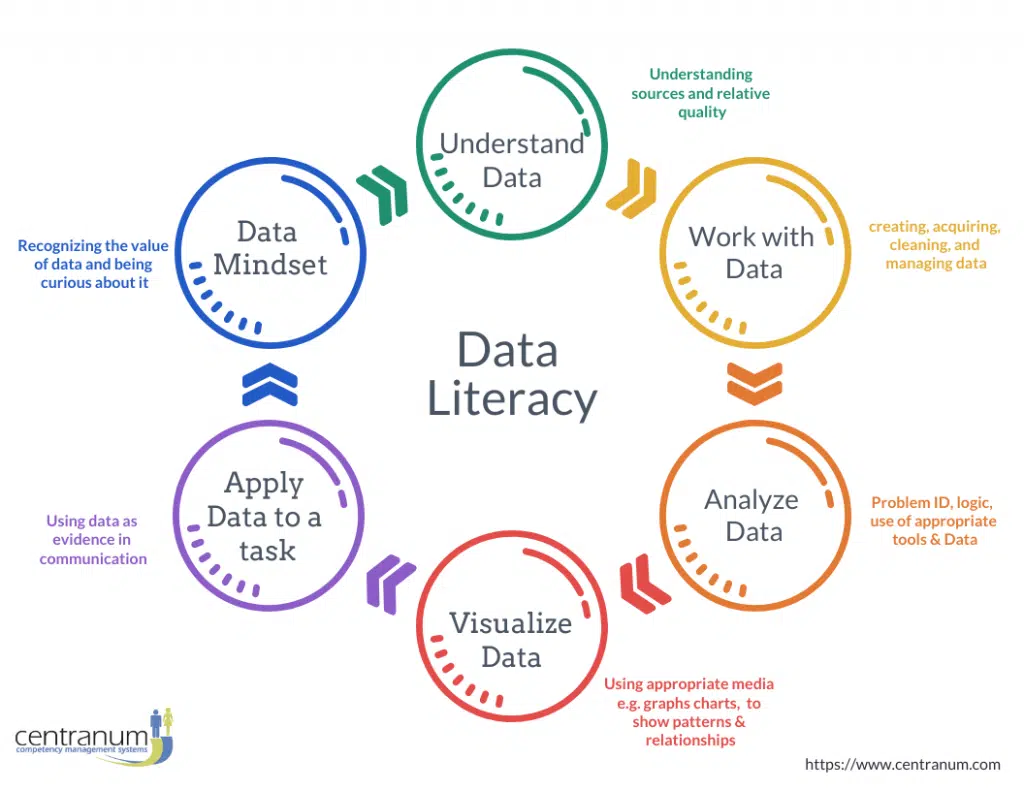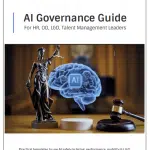
What Skills Are Needed for Workforce AI Readiness?
Introduction
Artificial intelligence (AI) is transforming how organizations operate, from automating administrative tasks to enabling advanced decision support. According to the World Economic Forum’s Future of Jobs Report (2025), over 80% of organizations expect to adopt AI within the next three years. Yet, surveys also show that fewer than half of companies believe their workforce has the right skills to make AI investments succeed.
Most organizations equate “AI readiness” with purchasing software or hiring a small number of data scientists. In reality, sustainable adoption depends on a much broader set of competencies across the entire workforce. Without them, AI projects stall, underperform, or fail to deliver return on investment.
So, what skills for AI readiness does an organization need ?
AI Readiness Is More Than Technology
It’s a common misconception that readiness depends only on having the right technical infrastructure or a few AI specialists. But AI touches multiple aspects of work: frontline operations, compliance, decision-making, and customer interaction.
AI readiness requires a blend of:
Technical skills — to design, implement, and safely integrate AI systems.
Core competencies — to interpret outputs, make ethical judgments, and adapt.
Leadership and organizational capabilities — to scale change and embed continuous learning.
Competency management provides the foundation. Without knowing what skills your people already have — and where the gaps are — you can’t plan effective reskilling or redeployment.
Resources
Core Technical Skills Needed for AI Readiness
Data Literacy & Analytics
Data is the raw material of AI. Every employee interacting with AI systems should understand:
- What makes data high quality (accuracy, timeliness, completeness).
- How to interpret dashboards and metrics.
- When to challenge or double-check data outputs.
Basic familiarity with tools like Power BI, Tableau, or SQL is increasingly valuable across roles, not just in analytics departments


Applied Machine Learning Awareness
Few employees need to build algorithms from scratch. But many benefit from a working understanding of:
- The difference between supervised and unsupervised learning (including learning from mistakes & feedback)
- Model training, validation, and overfitting.
- Common risks such as bias or hallucination.
This awareness helps teams set realistic expectations and recognize when models are being misused.
Prompt Engineering & Human–AI Interaction
Generative AI has introduced a new skill: prompt engineering. Employees must know how to:
- Craft clear, specific instructions to achieve reliable outputs.
- Iterate prompts to refine tone, format, or compliance.
- Orchestrate multiple AI tools in a workflow (“AI chaining”).
Prompting is not just about efficiency — it directly affects quality and risk

Automation & Workflow Integration
AI delivers value when integrated into real business processes. This requires:
- Understanding robotic process automation (RPA).
- Knowledge of APIs and connectors.
- Skills in mapping where humans, AI, and software interact in a workflow.
Employees who can design and maintain these integrations help AI scale beyond pilots.
Data Engineering & Cloud Platforms
Technical staff need familiarity with cloud infrastructure and data pipelines:
- Basics of AWS, Azure, or Google Cloud AI environments.
- Data lakes, ETL (extract, transform, load), and pipeline monitoring.
- MLOps practices for deploying models at scale.
Even non-specialists benefit from knowing how AI services are hosted and secured.
AI Governance, Ethics & Compliance
AI carries legal and reputational risks. Skills are needed in:
- Understanding regulatory frameworks (EU AI Act, GDPR).
- Bias detection and fairness checks.
- Documenting and auditing AI decisions.
Embedding governance skills across the workforce reduces the risk of misuse and ensures accountability.

Cybersecurity for AI Systems
AI introduces new vulnerabilities. Employees in IT and security roles must:
- Protect training and operational data from tampering.
- Manage identity and access rights for AI systems.
- Detect emerging threats such as adversarial attacks.
Cybersecurity is a key technical skill for AI readiness.
Critical Workforce Competencies for the AI Era
Technology alone cannot guarantee responsible AI adoption. Human capabilities are equally important.
- Critical thinking & problem-solving — verifying outputs, spotting errors, and applying judgment.
- Adaptability & resilience — handling uncertainty as AI tools evolve.
- Collaboration & communication — coordinating across roles, often with hybrid human–AI workflows.
- Ethical reasoning — balancing efficiency with fairness and responsibility.
These skills determine whether AI augments human decision-making or undermines trust.
Leadership & Organizational Capabilities
Leadership skills for AI readiness must go beyond technology sponsorship. Key leadership competencies include:
- Strategic foresight — anticipating how AI changes role design, workforce composition, and market positioning.
- Change management — guiding teams through adoption, managing resistance, and aligning incentives.
- Building a learning culture — encouraging reskilling, upskilling, and cross-skilling as normal practice.
Without strong leadership competencies, AI projects often fail to progress beyond experimentation.

The Missing Link: Competency Frameworks
Even when leaders understand the skills needed, most organizations cannot answer a simple question: “Who in our workforce has these competencies already?”
That’s where competency management comes in. A structured way to
- Define and organize skill requirements
- Capture baseline measurements — mapping existing skills across teams.
- Run Gap analysis reporting — identifying shortfalls in AI-relevant skills.
- Promote targeted development — linking gaps to training, mentoring, and career pathways.
A competency management system ensures reskilling investments are focused where they matter most, rather than scattered across generic training programs.
Practical Steps to Build AI Readiness
- Audit existing competencies — use surveys, assessments, or performance reviews to map skills.
- Define future role requirements — identify which roles will expand, transform, or decline with AI.
- Map required AI skills — from technical (data literacy, workflow integration) to human (adaptability, ethical reasoning).
- Create reskilling and upskilling pathways — targeted programs for priority roles.
- Integrate competency management into talent systems — so readiness is continuously measured, not a one-off project.
In Summary
AI readiness is not just about technology adoption — it is a people challenge. Organizations that focus only on infrastructure risk expensive underperformance. Those that systematically build the technical, human, and leadership competencies for AI will see far greater returns.
The key is visibility: knowing what skills exist, where the gaps are, and how to close them. That requires robust competency management.
Next step: Download our AI in Competency Management Guide — discover what to automate, what to govern, and what to avoid when preparing your workforce for the AI era.
FAQs
What are the key skills needed for AI readiness?
Organizations need both technical skills (e.g. data literacy, machine learning, cloud platforms, cybersecurity) and workforce competencies (e.g. critical thinking, collaboration, ethical decision-making).
Why is AI readiness more than just technology?
Technology alone doesn’t deliver value. AI readiness requires leadership, governance, and workforce competencies that ensure it is used with good judgement, aligned with strategy and compliance requirements.
Which technical skills are most important for AI adoption?
The most important include data engineering, data literacy, machine learning fundamentals, cloud architecture, and security for responsible AI use.
What core workforce competencies are critical for the AI era?
Core competencies include critical thinking, adaptability, problem solving, collaboration, communication, and ethical judgment — enabling teams to use AI effectively and responsibly.
How can organizations build AI readiness skills?
Start with a competency framework to map required skills, assess current gaps, and use it to design upskilling, reskilling, and cross-skilling programs.

